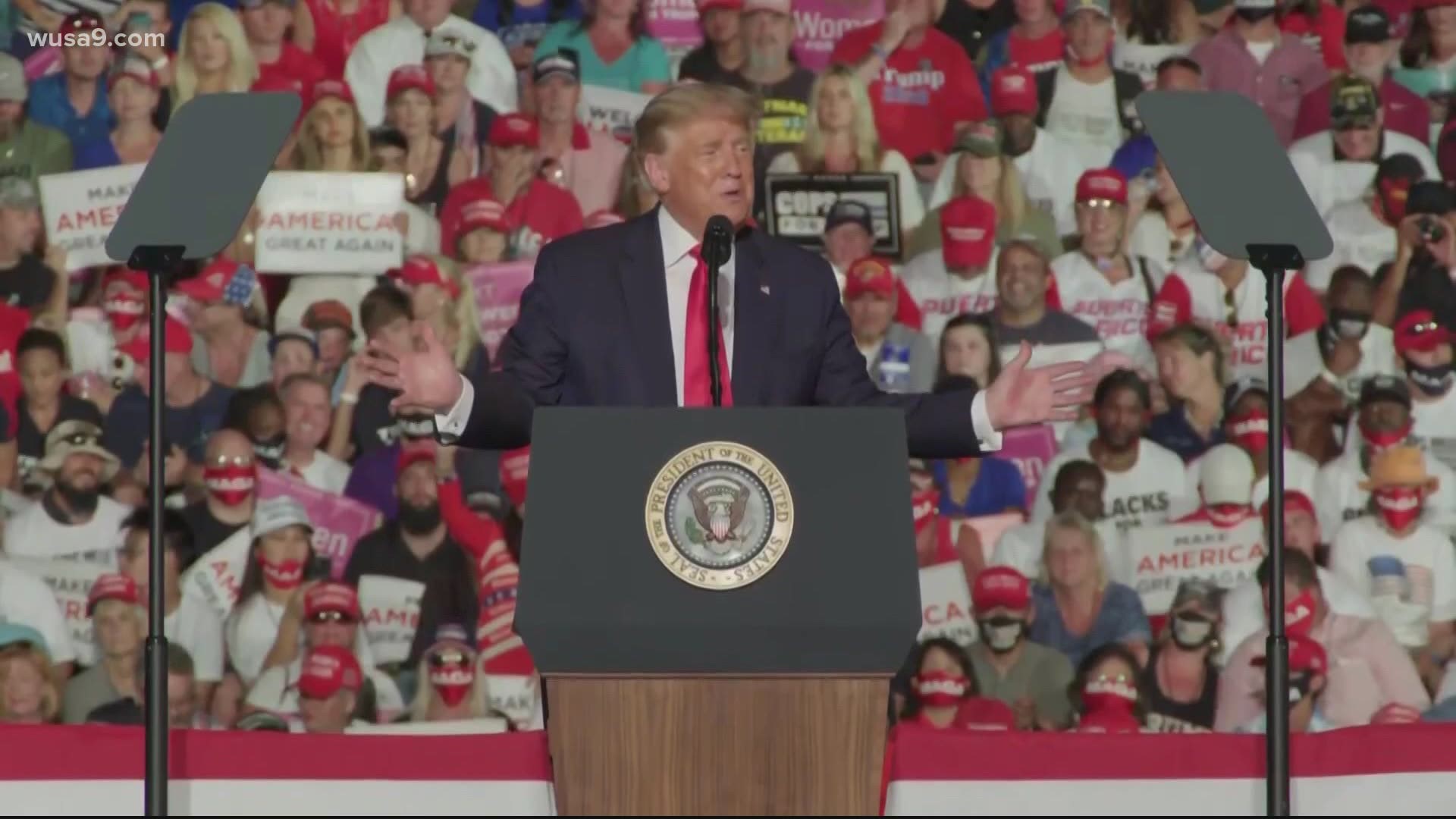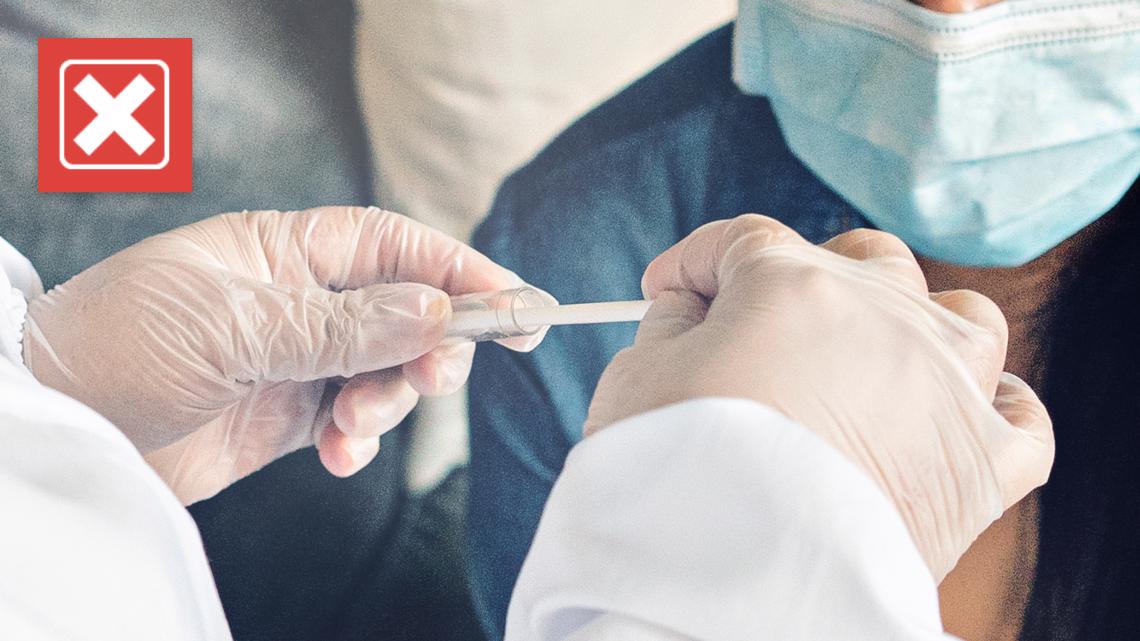WASHINGTON — The election is less than a month away and the candidates are making their final pushes for votes. Less than a month ago, President Trump was sidelined by COVID-19, but he is back on the campaign trail this week.
At several campaign stops, Trump has claimed he is now immune to the virus.
Question:
Is there proof you are immune to COVID-19 after you recover?
Answer:
No, according to experts, there is no conclusive evidence to support this claim.
Sources:
Infectious Disease experts Dr. Linda Nabha and Dr. Stuart Ray. The Centers for Disease Control and Prevention (CDC).
Process:
“The answer is we don't know that [people are gaining immunity],” Dr. Nabha said.
The CDC website backs up Dr. Nabha and states, “We do not know yet if people who recover from COVID-19 can get infected again. Scientists are working to understand this.”
“We also don’t know how to measure that immunity yet,” Dr. Ray agreed.
While our experts said it’s unknown if people can be re-infected, the CDC claims you can still test positive up to 90 days after diagnosis, and not be infectious to others.
“It's really about whether or not it's the same strain persisting in that person,” Dr. Ray said. “Which is another problem that we see that people can be shedding the virus for a very long period of time.”
It’s important to note there have been several studies that have looked at people being re-infected. The medical journal, The Lancet, reported on the first so-called case of reinfection in the U.S.
The man from Nevada tested positive, then negative, and then tested positive several months later. But experts report these singular studies aren’t enough to show reinfection in a population.


